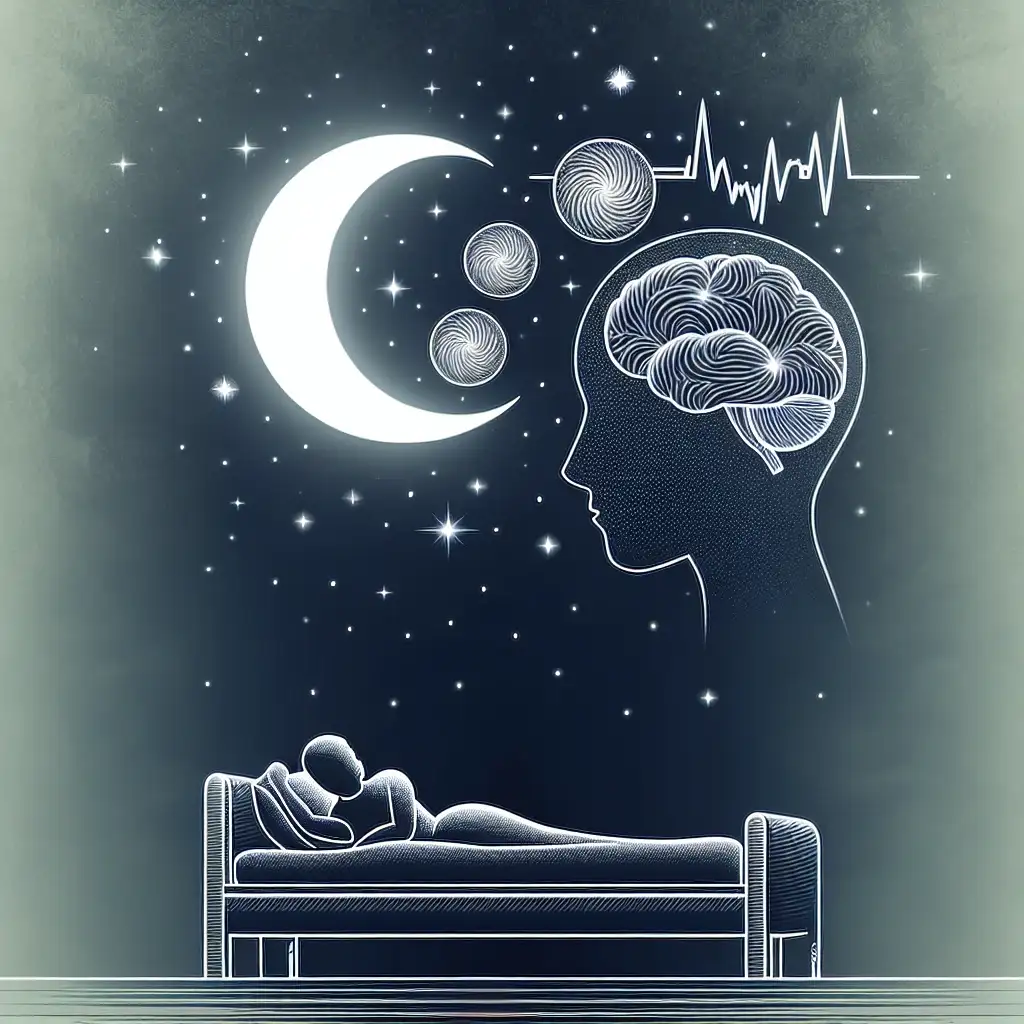Key Points
- Various sleep cycles play unique roles in rejuvenating our bodies and minds each night, with REM sleep contributing to memory consolidation and Non-REM sleep aiding in tissue repair and hormone synthesis.
- Sleep is intimately linked to learning and memory, with studies showing a significant improvement in cognitive functions after a good night's rest, highlighting the crucial role of sleep in memory storage and information connection.
- Exploring intriguing aspects of sleep research reveals surprising findings, such as the role of pre-sleep incubation in problem-solving and the genetic influence on individual sleep needs, offering a fascinating glimpse into the complex enigma of sleep.
Sleep is one of life’s profound mysteries. Every creature on the planet sleeps, from the smallest insect to the largest whale. But why? What makes sleep so essential that evolution carved it into the very fabric of life? In this article, we will dive deep into the science behind sleep, uncovering surprising facts that shed light on why we close our eyes each night.
The Refreshing Reboot: Understanding Sleep Cycles
Sleep is structured into cycles, each consisting of different stages that play unique roles in maintaining our health. The two primary types of sleep are:
-
REM (Rapid Eye Movement) Sleep: This stage is fascinating because it’s when we dream vividly. But REM sleep is not just for intriguing storylines in our dreams. It is crucial for memory consolidation, helping us to solidify what we’ve learned throughout the day.
-
Non-REM Sleep: This spans several stages, from light sleep (when we can be easily awakened) to deep sleep. During deep sleep, our bodies repair tissues, grow muscle, and synthesize hormones.
These cycles repeat several times a night, ensuring that our brains and bodies are effectively rejuvenated for the next day.
Sleep’s Impact on Learning and Memory
Recent scientific studies have shown a compelling link between sleep and learning. One experiment at the University of California, Berkeley, revealed that a good night’s sleep can improve memory and learning capacity by over 40%. But how?
- Storage: While we sleep, the brain organizes and stores memories. Without adequate sleep, this process is cut short, making it difficult to recall information later.
- Connection: Sleep also helps in linking new information with the old, enhancing problem-solving skills and creativity.
The Guardian of Physical Health
Sleep is pivotal not only for cognitive function but also for overall physical health. Here are a few ways how:
- Heart Health: During sleep, blood pressure lowers, giving the heart and vascular system a much-needed rest.
- Weight Control: Lack of sleep is linked to weight gain. Hormones that regulate appetite are influenced by sleep: Ghrelin (which makes you feel hungry) increases with insufficient sleep, and Leptin (which signals fullness) decreases.
- Immune Function: Even a small loss of sleep has been found to impair immune function, making us more susceptible to infections.
Mental Wellbeing: Sleep’s Role in Emotional Regulation
One less discussed but equally vital aspect of sleep is its effect on our mood and mental health. Sleep disturbances are closely linked with conditions like depression and anxiety. Sleep helps regulate the chemicals in our brain, including serotonin and dopamine, that affect mood and stress.
What Happens if We Don’t Sleep?
Ignoring the need for sleep can have dire consequences. A few sleepless nights might only lead to irritability and reduced concentration, but chronic sleep deprivation can lead to severe physical and mental health issues:
- Cognitive Impairment: Memory, concentration, decision-making, and problem-solving skills diminish.
- Increased Accident Risk: Sleep deprivation was a factor in some of the biggest disasters in recent history, like Chernobyl and the Exxon Valdez oil spill.
- Health Problems: Long-term lack of sleep is linked with chronic conditions like diabetes, obesity, and cardiovascular diseases.
Intriguing Discoveries in Sleep Research
Interestingly, while the question of “Why we sleep?” seems straightforward, some findings in sleep research might surprise you:
- Pre-Sleep Incubation: Scientists observed that people often solve problems in their sleep that they couldn’t when awake; this process is known as “incubating” solutions.
- Genetic Influence: Your genetic makeup could influence how much sleep you need. Researchers discovered specific genes that are directly related to short sleep duration.
- Sleep in the Animal Kingdom: Some animals have extraordinary sleep patterns. For instance, dolphins sleep with half of their brain awake to remain alert to threats and to continue surfacing for air.
Conclusion: The Essential Enigma of Sleep
While many questions about sleep remain unanswered, it is clear that this natural phenomenon is integral to maintaining mental, emotional, and physical health. Each night, as we drift into sleep, we are not just resting; we are allowing our bodies and minds to restore, rejuvenate, and prepare for another day.
To explore more about the mysteries of human biology and psychology, check out other articles on this site. From the science of habits to the mysteries of the subconscious mind, there’s plenty more to learn and discover. Join us on this journey of exploration and insight!
This article was crafted to not only educate but also ignite curiosity, opening a gateway to further exploration about sleep and its profound significance in our lives.

